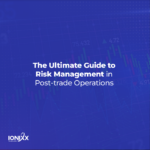Business leaders are increasingly looking beyond their local borders to tap into the vast opportunities offered by global markets. One key aspect that plays a pivotal role in international business is the foreign exchange (Forex) market. Understanding how global markets and Forex work is crucial for business leaders aiming to expand their operations globally and manage risks effectively.
The Global Marketplace Landscape
Global markets encompass a diverse array of economies, cultures, and regulatory environments. Business leaders need to conduct comprehensive market research to identify viable opportunities and potential challenges in different regions. This includes understanding local consumer behaviors, economic conditions, and political landscapes.
Diversification Strategies
Diversifying into global markets helps mitigate risks associated with relying solely on one market. By tapping into various economies, businesses can balance potential losses in one region with gains in another. This approach also positions companies to adapt to changing economic conditions and consumer preferences.
The Role of Forex in International Business
Forex, short for foreign exchange, is the marketplace where currencies are bought and sold. It is the largest and most liquid financial market globally, with a daily trading volume exceeding $6 trillion. For business leaders, mastering the basics of Forex is essential for managing cross-border transactions and protecting profits.
Risk Management through Forex
Currency fluctuations can significantly impact a company’s bottom line. Business leaders must implement effective risk management strategies to hedge against adverse currency movements. Utilizing Forex instruments like forward contracts, options, and futures can help lock in favorable exchange rates and protect against potential losses.
Cost-Efficient International Transactions
Understanding Forex enables businesses to conduct cost-efficient international transactions. By optimizing currency exchange processes, companies can minimize transaction costs and enhance overall profitability. This is particularly crucial for businesses engaged in importing/exporting goods or providing services on a global scale.
Building a Global Forex Strategy
To successfully navigate global markets, business leaders should develop a robust Forex strategy tailored to their specific needs and objectives.
Strategic Partnerships
Building strategic partnerships with financial institutions and Forex experts can provide valuable insights and support in navigating the complexities of the global financial landscape. These partnerships can help businesses stay informed about market trends, regulatory changes, and potential risks.
Continuous Learning
Staying informed about global economic trends and Forex market dynamics is an ongoing process. Business leaders should encourage their teams to engage in continuous learning and professional development to remain agile and responsive to market changes. Online courses, industry conferences, and regular market analyses are valuable resources for staying abreast of the latest developments.
Conclusion
Embracing global markets offers businesses unprecedented growth opportunities, but it comes with its unique set of challenges. By understanding the intricacies of Forex and implementing effective strategies, business leaders can confidently navigate the complexities of international business, minimize risks, and unlock the full potential of global markets.
Learn more about developing a comprehensive global strategy and mastering Forex dynamics to ensure your business thrives in the ever-evolving landscape of international commerce.








